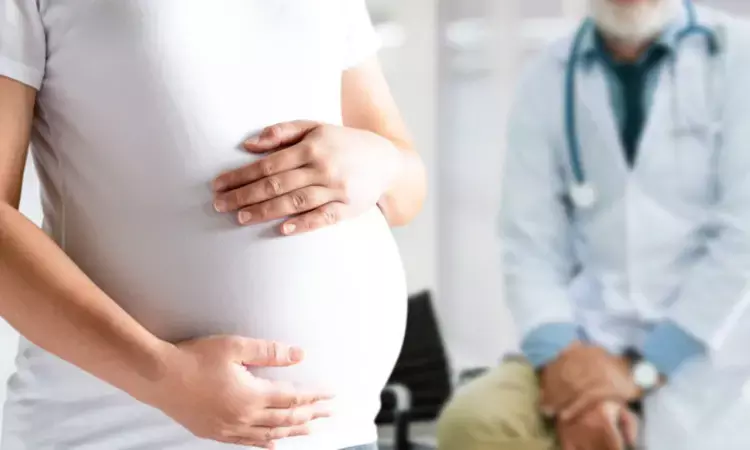- Home
- Medical news & Guidelines
- Anesthesiology
- Cardiology and CTVS
- Critical Care
- Dentistry
- Dermatology
- Diabetes and Endocrinology
- ENT
- Gastroenterology
- Medicine
- Nephrology
- Neurology
- Obstretics-Gynaecology
- Oncology
- Ophthalmology
- Orthopaedics
- Pediatrics-Neonatology
- Psychiatry
- Pulmonology
- Radiology
- Surgery
- Urology
- Laboratory Medicine
- Diet
- Nursing
- Paramedical
- Physiotherapy
- Health news
- Fact Check
- Bone Health Fact Check
- Brain Health Fact Check
- Cancer Related Fact Check
- Child Care Fact Check
- Dental and oral health fact check
- Diabetes and metabolic health fact check
- Diet and Nutrition Fact Check
- Eye and ENT Care Fact Check
- Fitness fact check
- Gut health fact check
- Heart health fact check
- Kidney health fact check
- Medical education fact check
- Men's health fact check
- Respiratory fact check
- Skin and hair care fact check
- Vaccine and Immunization fact check
- Women's health fact check
- AYUSH
- State News
- Andaman and Nicobar Islands
- Andhra Pradesh
- Arunachal Pradesh
- Assam
- Bihar
- Chandigarh
- Chattisgarh
- Dadra and Nagar Haveli
- Daman and Diu
- Delhi
- Goa
- Gujarat
- Haryana
- Himachal Pradesh
- Jammu & Kashmir
- Jharkhand
- Karnataka
- Kerala
- Ladakh
- Lakshadweep
- Madhya Pradesh
- Maharashtra
- Manipur
- Meghalaya
- Mizoram
- Nagaland
- Odisha
- Puducherry
- Punjab
- Rajasthan
- Sikkim
- Tamil Nadu
- Telangana
- Tripura
- Uttar Pradesh
- Uttrakhand
- West Bengal
- Medical Education
- Industry
Women more prone to episodes of hypo and hyperglycemia during and after pregnancy after RYGB surgery

Denmark: Pregnant women with a history of Roux-en-Y gastric bypass (RYGB) surgery are more exposed to hyper- and hypoglycemia than their peers without an RYGB history, claims a study published in Diabetes Care.
Roux-en-Y gastric bypass surgery is the most frequently performed bariatric procedure worldwide and significantly affects weight loss and diabetes remission.
RYGB and pregnancy noticeably alter glucose metabolism, but there is not much evidence of glucose metabolism in pregnancy after RYGB. Thus, Louise L. Stentebjerg from Odense University Hospital in Odense, Denmark, and colleagues set out to investigate interstitial glucose (IG) profiles during pregnancy, the association between the growth of fetus and hypoglycemia in pregnant patients previously underwent RYGB surgery versus control participants, and risk factors linked with hypoglycemia.
For this purpose, the researchers prospectively studied twenty-three pregnant women with RYGB and 23 BMI- and parity-matched pregnant women taken as a control group. Continuous glucose monitoring was done in their first, second, and third trimesters and four weeks postpartum. TIR (time in range) was defined as time with an interstitial glucose level of 3.5–7.8 mmol/L.
The study led to the following findings:
- Women with RYGB were four years older than control participants.
- Pregnancies occurred 30 months after RYGB, which reduced BMI from 45 kg/m2 presurgery to 32 kg/m2 prepregnancy.
- Women with RYGB spent decreased TIR (87.3–89.5% vs. 93.3–96.1%) owing to an approximately twofold increased time above range and increased time below range (TBR) throughout pregnancy and postpartum compared with control participants.
- Women with increased TBR had a longer surgery-to-conception interval, lower nadir weight, and more significant weight loss after RYGB.
- Women giving birth to small-for-gestational-age neonates experienced slightly increased TBR.
To conclude, blood sugar control is altered in patients with a recent history of bariatric surgery, with a higher risk for a time below range.
"Women with RYGB were more exposed to hypo- and hyperglycemia during pregnancy than control participants," the authors wrote. "Further studies should investigate whether hypoglycemia during pregnancy in women with RYGB is linked with decreased fetal growth."
Reference:
Stentebjerg LL, Madsen LR, Støving RK, Andersen LLT, Vinter CA, Juhl CB, Jensen DM. Roux-en-Y Gastric Bypass Increases Glycemic Excursions During Pregnancy and Postpartum: A Prospective Cohort Study. Diabetes Care. 2022 Dec 7:dc221357. doi: 10.2337/dc22-1357. Epub ahead of print. PMID: 36477853.
Dr Kamal Kant Kohli-MBBS, DTCD- a chest specialist with more than 30 years of practice and a flair for writing clinical articles, Dr Kamal Kant Kohli joined Medical Dialogues as a Chief Editor of Medical News. Besides writing articles, as an editor, he proofreads and verifies all the medical content published on Medical Dialogues including those coming from journals, studies,medical conferences,guidelines etc. Email: drkohli@medicaldialogues.in. Contact no. 011-43720751


